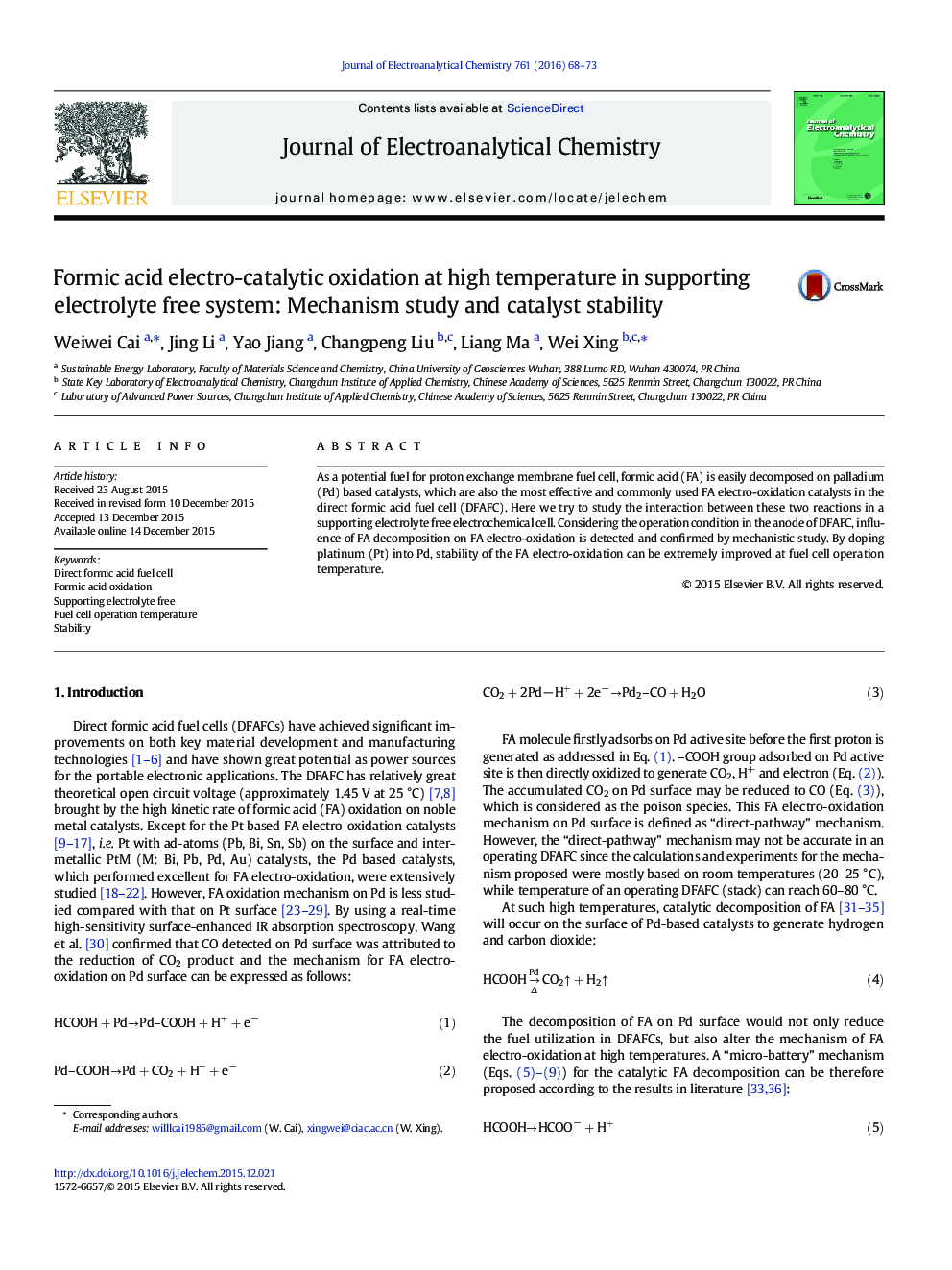| Article ID | Journal | Published Year | Pages | File Type |
|---|---|---|---|---|
| 218077 | Journal of Electroanalytical Chemistry | 2016 | 6 Pages |
•FA electro-oxidation mechanism at fuel cell operation temperature is studied.•Supporting electrolyte free system is used for the electrochemical measurements.•FA decomposition on Pd at high temperature will suppress the electro-oxidation.•Inviting Pt will further change the FA electro-oxidation mechanism.
As a potential fuel for proton exchange membrane fuel cell, formic acid (FA) is easily decomposed on palladium (Pd) based catalysts, which are also the most effective and commonly used FA electro-oxidation catalysts in the direct formic acid fuel cell (DFAFC). Here we try to study the interaction between these two reactions in a supporting electrolyte free electrochemical cell. Considering the operation condition in the anode of DFAFC, influence of FA decomposition on FA electro-oxidation is detected and confirmed by mechanistic study. By doping platinum (Pt) into Pd, stability of the FA electro-oxidation can be extremely improved at fuel cell operation temperature.
